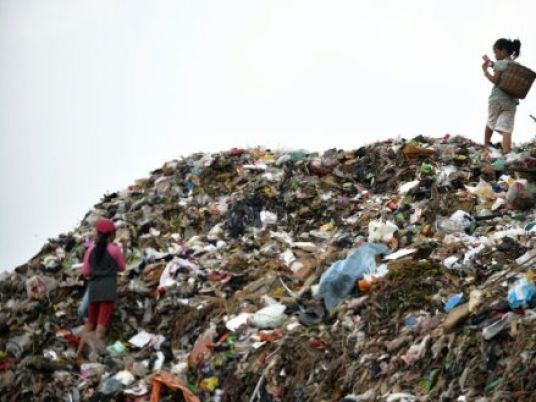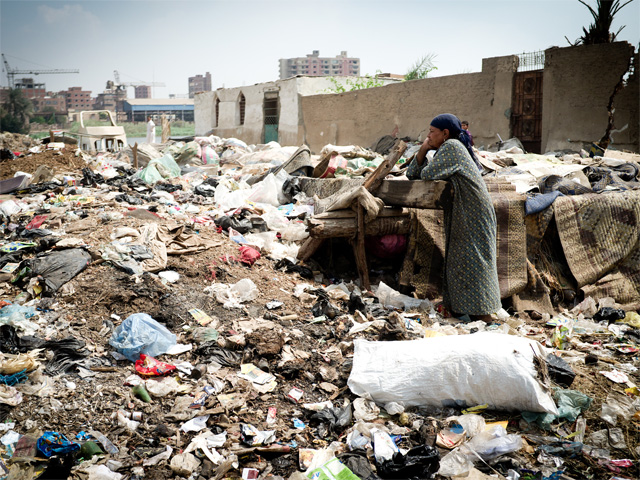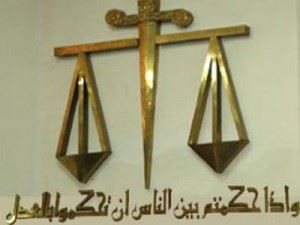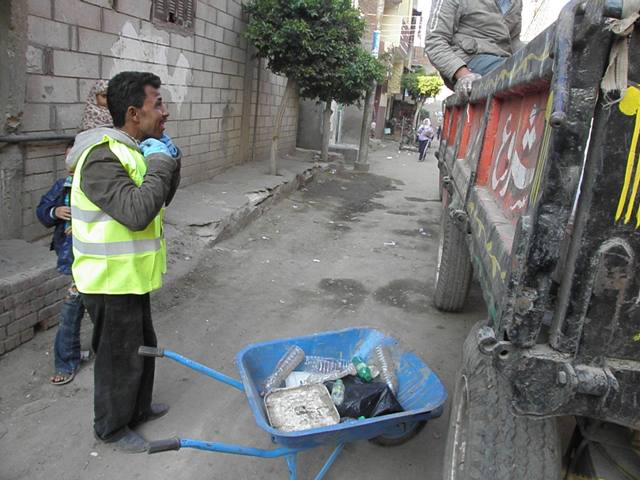A few weeks ago, former Justice Minister Mahfouz Saber said the sons of garbage collectors cannot work for the prosecution, an entrance level job in the judicial system, regardless of their grades in law school. He thereby admitted discrimination based on social class.
The issue of the garbage collectors was brought up again when a police officer slapped the face of a Manshiyet Nasser resident, where half a million people live under the poverty belt.
For those who have not heard of Manshiyet Nasser, it is a shantytown that has existed for a good 60 years, to which immigrants from the Western Sahara and Upper Egypt came to settle.
Like more than 20 other shantytowns in and around Greater Cairo, Manshiyet Nasser had been unknown to state institutions, including the Interior Ministry and the Central Agency for Public Mobilization and Statistics, until American sociologist Janet Abu-Lughod wrote a book about it in the mid-sixties.
The Egyptian sociologist Sharif al-Hakim also wrote about the place, saying that the people who came to settle there had no skills to work in any vocation except to collect garbage in upper class neighborhoods, such as Zamalek and Garden City, with primitive wooden carts pulled by donkeys.
They named the place after President Nasser in an attempt to keep the authorities from pushing them out of the area.
Then they found out that the garbage they collected contained food that they could eat themselves or give to their animals and birds, and other inorganic waste, such as glass, shoes, old clothes and electrical appliances, that could be recycled. And so, the sorting of garbage became a commercial activity whereby those collectors could sell waste material to certain markets on the outskirts of Cairo.
Soon Manshiyet Nasser became a significant neighborhood in Cairo to which civil society organizations offered services and facilities. Also, the politicians discovered that the place had enough adult citizens who were eligible for voting in parliamentary elections.
But more importantly, the residents of Manshiyet Nasser did participate in the January 25 revolution, breaking the fear barrier. They are now proud of themselves and expect others to respect them, whether fellow citizens or officials.
Still, certain officials, such as the former justice minister and the officers of the police station, did not realize the change that has occurred there and still looked at the residents of that place as inferiors.
The minister lost his job and the officer almost lost his life, the latter whom was saved by Father Simon who took him away from the clutches of the angry mob and hid him at the monastery.
In order to keep this from happening again, I appeal to the President, the Prime Minister and the Interior Minister to reconsider a proposal that I had sent to former Interior Minister Mansour Essawy in 2011, in which I asked for a complete reform of the police force and requested they stop forcing citizens to call every officer from the rank of lieutenant to the rank of major general “Pasha” because this was a title that was abolished with the monarchy back in 1952.
Perhaps people became a bit nostalgic for the good old days of the monarchy after Sadat died, but this nostalgia had a negative impact. By using former royal titles when addressing ministers or military and police officers, fictitious class differences are created, causing tensions in poverty-stricken areas like Manshiyet Nasser.
I believe the officer who slapped the resident of Manshiyet Nasser is but a victim of the culture of the security institution that refuses to recognize that Egypt has witnessed two revolutions that have dazzled the world and broken the powerful fear barrier.
Police officers must respect the citizens in order for the citizens to respect them in return.
Edited translation from Al-Masry Al-Youm




